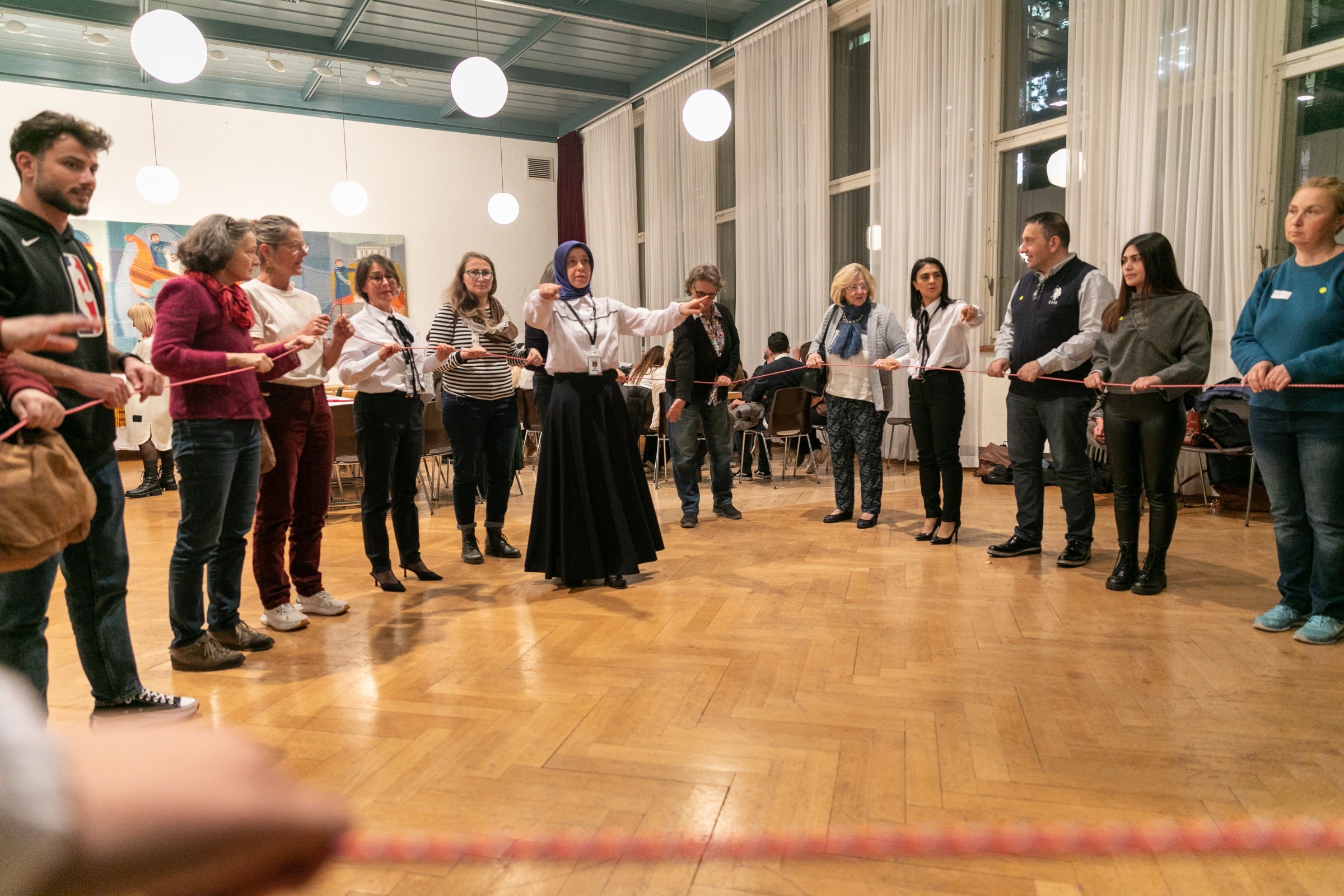Migration policy
This page has been automatically translated. The German version is authoritative. Thank you for your understanding.
For women with migration experience, access to the Swiss labour market is often hampered by legal, social and institutional discrimination. Their foreign diplomas and professional experience are often not recognised in Switzerland. They also usually lack a professional network and information about the labour market.
Women in particular often cannot find a job that matches their training and qualifications and work at a less qualified level. The widespread prejudice that migrants are poorly qualified favours this disqualification. Job placement centres often place migrants in gender-stereotypical and ethnicised jobs below their qualification level. There is also a widespread attitude that male partners in particular should be integrated into the world of work so that the whole family can be provided for. However, reality shows that by no means every migrant woman lives in a partnership and that this approach reinforces patriarchal stereotypes and dependencies.

On an individual level, deskilling leads to a loss of autonomy and self-confidence for the women concerned. From an overall social and economic perspective, there is untapped potential that could be utilised in a resource-oriented manner. The lack of participation in the labour market in turn has a negative impact on the women's residence status. The criterion of «participation in economic life» plays a decisive role in decisions on residence status and naturalisation.
Affected by multiple discrimination
Migrants are subject to multiple, intersectional forms of discrimination, for example on the basis of gender, origin and religion, which lead to increased disadvantage. Under immigration law, separation or divorce from the husband can jeopardise their residence status if their purpose of residence is tied to «remaining with the husband». Migrants affected by domestic violence therefore often remain in a relationship characterised by violence. The structural framework means that immigrant women are often affected by several forms of violence at the same time.
Women with migration experience in particular perform a large proportion of the often invisible, unpaid or underpaid care work, including in private households. This often takes place under inadequately regulated working conditions and with poor pay.

What does Frieda do
Frieda is committed to the equal participation of migrants in politics, work and society. Frieda develops empowerment projects with migrants on the topics of education and gainful employment. They aim to make it easier for migrants to access education and enter the labour market. The projects are geared towards the resources and skills of women and thus challenge the structural hurdles faced by migrants in Switzerland.
The project participants acquire basic knowledge about economic processes, the care economy and unpaid and underpaid labour. They expand their understanding of economic processes, place their own situation in the economic context and recognise structural discrimination. In continuing education workshops and networking events, they learn the basics of the labour market and labour law in Switzerland. An individual practical project serves to apply and deepen knowledge, but also as a networking opportunity.
